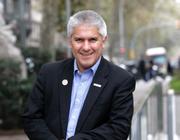Abstract
PURPOSE:
Pediatric cancer represents 1% to 4% of all cancers worldwide, with the majority of diagnoses in developing countries where mortality remains much higher than that in high-income countries. We sought to describe differences in ethical decision-making at the end of life among an international sample of pediatric oncologists practicing in countries with a variety of income levels and resource settings.
METHODS:
Pediatric oncologists subscribing to an educational international oncology Web site were invited to complete a 38-item web-based survey investigating ethical domains related to end-of-life care: level of care, fiduciary responsibility, decision making, and justice.
RESULTS:
Responses were received from 401 physicians in 83 countries, with most respondents practicing in middle-income or high-income countries. Significant differences in attitudes toward ethical issues existed across the national developmental indices.
CONCLUSIONS:
Further education on ethical principles is warranted in pediatric oncology, particularly among oncologists practicing in low-income or middle-income countries.
